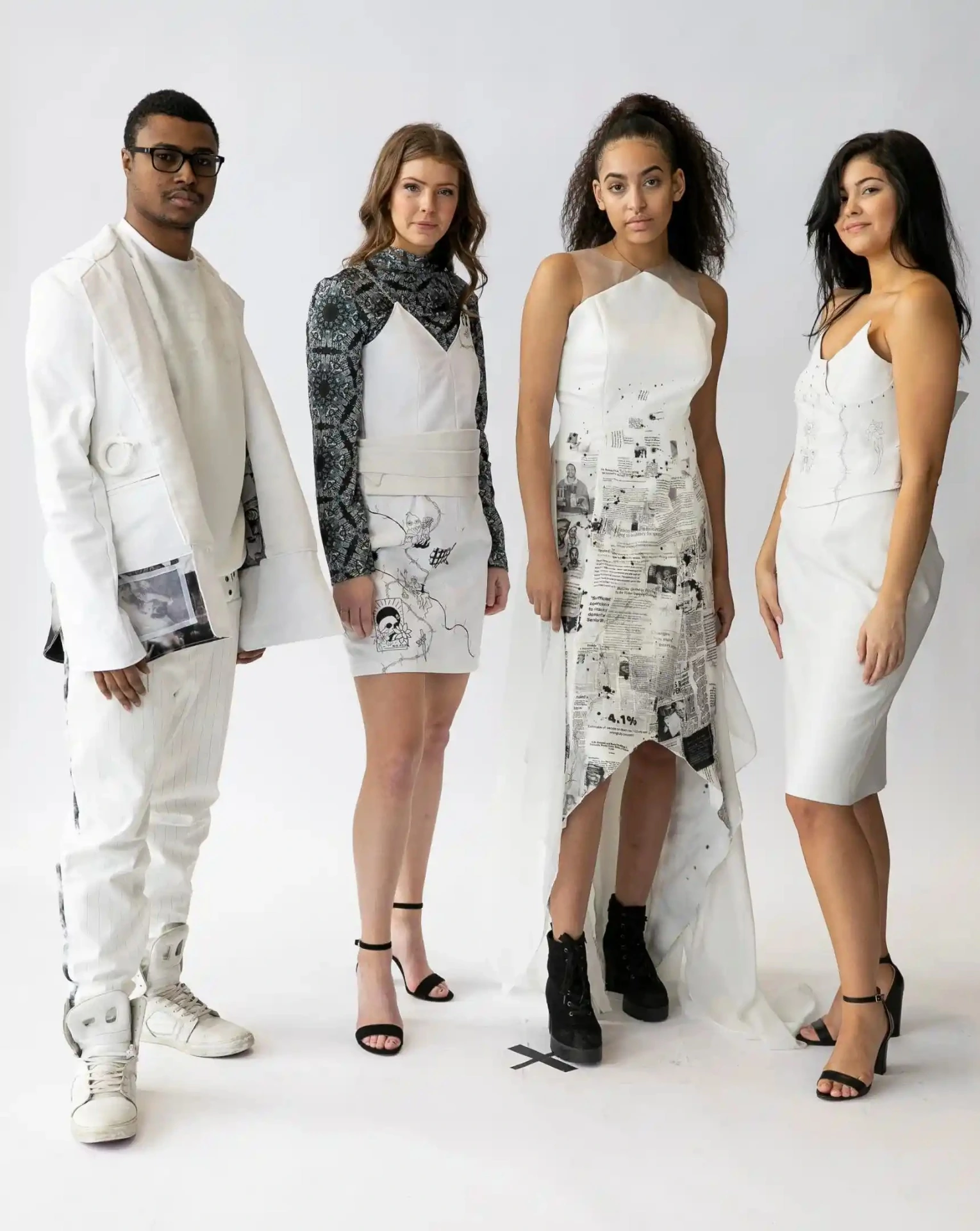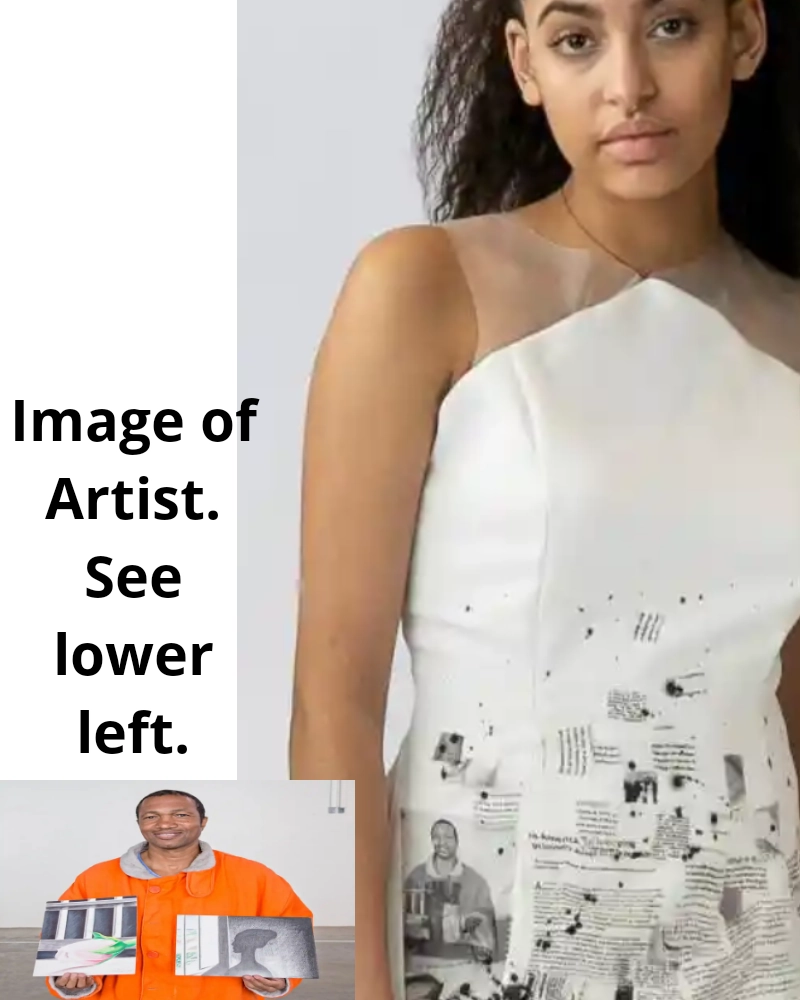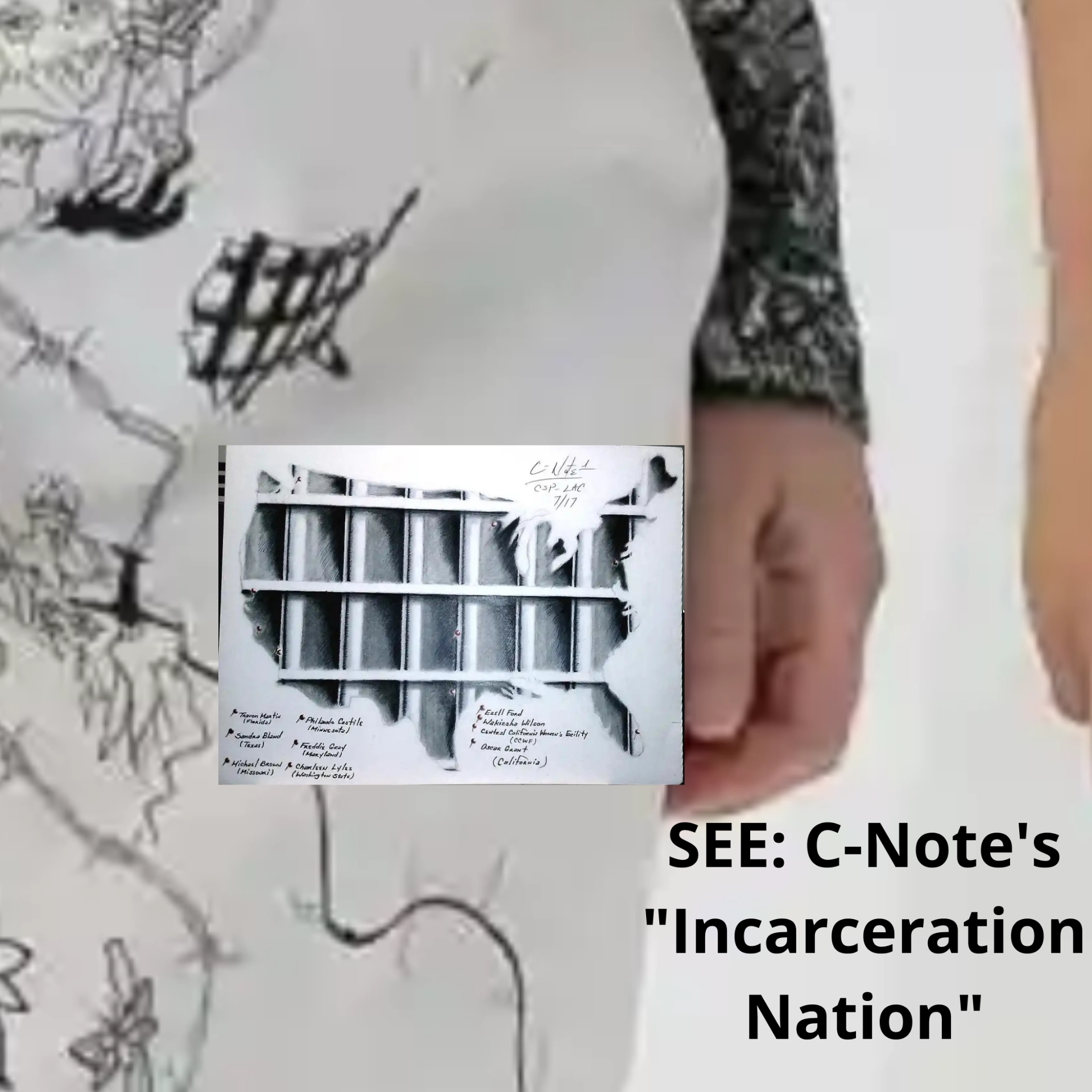Behind Bars, Beyond Limits: Anna D. Smith on the Transformative Power of Prison Art
- Yuliana Arles
- Sep 19, 2023
- 10 min read
Updated: Oct 26, 2024
Art serves as a potent force, enabling individuals to confront their inner turmoil and channel their energy in constructive directions. Art therapy has long provided a creative outlet for those convicted of various crimes. With ample time at their disposal, sometimes spanning their entire lives, inmates inherently crave opportunities for creativity. This urge leads them to use any means to express their creativity, from molding with prison soap, to making paint from toothpaste and dried coffee, to tattooing their bodies.
In contemporary times, numerous countries allocate state budgets for prisoner art therapy programs. For instance, the US Government annually dedicates several million dollars to the "Art in Correctional Institutions" program. In California prisons, professional artists are employed mainly by non-profit grants to instruct inmates in painting and sculpture.
Inmate artwork has rightfully earned its place in the broader art world, with pieces showcased in exhibitions, auctions, and even events such as the Venice Biennale. A prime example is the 2013 installation, "You Have a Watch, We Have Time," which displayed paintings and graphic works by former military personnel who served in Afghanistan and Iraq before being convicted of various offenses.
Is this phenomenon a novel trend in contemporary art, or does it signify progress towards equal opportunities? Let us explore this question alongside art and real estate broker Anna D Smith, who represents California prison artist Donald Hooker, widely known as C-Note.
Yuliana Arles: What was the turning point in your life that prompted you to become an advocate for prison artists and promote their artwork?
Anna D. Smith: The real drama of life doesn't unfold in fairy tales, but in genuine life experiences. While many pursue fame, I've been a dreamer since childhood, aspiring to effect positive change in the world.
My father, who worked for IBM and taught at a prison in Jackson, Michigan, brought to light the inequities faced by Black inmates. He consistently exemplified courage and honesty; he never hesitated to reveal the unvarnished truth.
My move to California wasn't easy. Building connections was challenging, and every individual I encountered held a unique place in my heart. For instance, a friend from eighth grade sought refuge in my closet, trying to escape her tumultuous life. Eventually, she ended up on the streets, and her destiny was far from kind. This opened my eyes to the plight of the homeless, prompting me to volunteer at a center for homeless youth in San Francisco. Their narratives deeply resonated with me.
In my quest for purpose, I pivoted from Stanford management to legal studies, obtaining a paralegal degree. Concurrently, I took in a foster child, sharing life's peaks and valleys together.
2018 saw the devastating loss of my twin; in 2019, my son was incarcerated. It was during this time that I connected with Donald "C-Note" Hooker, an incredibly talented and compassionate imprisoned artist, via The Hope Wire. His unwavering support was invaluable; he even inspired me to go skydiving in remembrance of my twin at age 60.
Dubbed the "Billboard Banksy," his evocative art has left an indelible mark on many. Amidst the pandemic, when conventional art spaces were shuttered, I organized two outdoor showcases of his pieces titled "Look Up!" These artworks, illustrating themes such as state-endorsed fatalities and beauty amidst despair, became symbols of optimism, urging people to recognize life's splendor even in tumultuous times. I hope his creations inspire Silicon Valley, nudging everyone to embrace joy and beauty despite surrounding challenges.
I advocate for incarcerated artists like Donald "C-Note" Hooker, bearing in mind that the U.S. has 2.3 million people behind bars, a number comparable to the population of Santa Clara County.
Yuliana Arles: Your life carries a unique mission; you've emerged as a voice for those confined, enabling them to articulate their emotions and perspectives. Delving into the realm of art, how do you believe it assists inmates in managing their situations, and what significance does it hold in their path to rehabilitation?
Anna D. Smith: That's a really good question, Yulianna. Let me give you an example, a 2021 study highlighted the benefits of the Bard Prison Initiative, which provides higher education to inmates in New York City. Participants were less likely to reoffend, especially those earning degrees. In California, Brewster notes arts programs decrease disciplinary infractions, making prison classrooms feel safer than the yards. Photographer Peter Merts calls these classrooms “sanctuaries.” He co-authored Paths of Discovery and documented the play “Redemption in Our State of Blues.”

State prisoners often have just a 10th-grade education, with incarceration closely tied to poverty, disproportionately affecting people of color. Prison education can promote post-release mobility. The U.S. spends about $81 billion annually on incarceration, yet offers minimal support for reintegration. Reentry nonprofits run on tight budgets, often competing for limited funds.
To effectively reduce recidivism, inmates should earn from their art. This income can aid in post-release essentials. Though prisoners can earn money, prison wages are meager, with some states not paying at all. California mandates prisoner work but pays a minimal “gate money” upon release, often less than $200. Encouraging inmates to earn through art can better equip them for post-release challenges.
Yuliana Arles: Indeed, when a person comes out of prison with certain knowledge, skills and acquired professions, it is easier to adapt and integrate into society. It is wonderful that there are professionals like you who are ready to lend a helping hand at such a time. Let me ask you what difficulties do you face in promoting and showcasing the works of artists in prison, and how do you overcome them?
Anna D. Smith: When I began my endeavors, I was met with two distinct emotional responses.
People from both genders looked at me as though I had unleashed animals from a cage. (Personally, I found this unsettling).
Some made absurd remarks such as, “He's exploiting me.” These comments came across as self-centered and incredibly hurtful. It prompted me to question, “Does this imply my son is exploiting me as well?”
While these were the emotional hurdles, tangible challenges were present too. To showcase C-Note's artistry, a venue and audience were essential. However, due to COVID-19, many art galleries had shut their doors. Thus, I opted for billboards as a medium to highlight C-Note's artistry.
Yuliana Arles:Individuals who have faced numerous hardships and incarceration tend to be naturally reserved. How do you build trust and relationships with incarcerated artists, given the barriers and limitations they face?
Anna D. Smith: Firstly, incarcerated individuals possess feelings, desires, and aspirations, just like everyone else. Building trust and forming relationships with them takes time, similar to building relationships with individuals in the broader community.
Barriers they face include mail correspondence and phone calls that can cost up to $5. Additionally, they might need to pay an extra $10 just to deposit money into a savings account for purchasing groceries or hygiene supplies. The cost of these items has risen by 25% when accounting for inflation.
For instance, a cup of noodles that used to cost 25 cents now costs 75 cents. Ensuring paperwork is correct can be a tedious task, sometimes necessitating cunning methods. While it may seem questionable, it's done in pursuit of a larger cause.
As an illustration, when C-Note needed his social security number, an employee at the social security office, on my third visit, empathetically displayed the number on a slip of paper. She theatrically exclaimed, “This is all wrong,” then gave a covert wink and shared the number with me.
Yuliana Arles: Despite all the barriers and difficulties, there is always a ray of hope. Can you share an example of a success story where recognition and appreciation of an incarcerated artist's work led to significant positive changes in their lives?
Anna D. Smith: I believe that positive change and inspiration can be mutual! While many may overlook the activities in the prison art market, I'm deeply invested, as prison art is a key segment within my portfolio of underground art genres. Since her release from ICE custody in October, Anna Delvey has sold prints and originals worth over $100,000. I've had the privilege of gaining exclusive access to her work.
In 2017, Agnes Gund, the 81-year-old chairwoman of MoMA PS1's board of directors, sold her 1962 Roy Lichtenstein masterpiece for $150 million. In an unparalleled move in the prison art sphere, she dedicated $100 million to patronage outside of prison walls, urging other affluent art patrons to contribute similarly with their Fine Art pieces.
Regarding my protégé, Donald "C-Note" Hooker: in 2019 and 2021, his 2017 piece "During the Flood" was employed by individuals and community organizations as a PSA, advocating for the evacuation of prisons in the wake of Hurricanes Dorian and Ida.
Between 2019-2020, C-Note collaborated with Mackenzie Stiles, a senior fashion design student at the Columbus College of Art and Design, on her senior thesis titled "Mercy." For the first time in the 143-year history of this institution, a student incorporated prison art into a clothing line design. COVID-19 restrictions in spring 2020 prevented the 2020 CCAD Fashion Show, which would have marked a historic moment: models showcasing outfits crafted using prison art.
Yuliana Arles: In light of your personal experience and work with prison artists, what message would you like to convey to society about the power of art as a tool for healing, understanding, and transformation?
Anna D. Smith: Prison artwork has been donated, submitted for art contests, is in magazines, and books, and has been shown in galleries, and museums. The art merits recognition and the artists must be compensated just like other artists. While many people can exhibit their art after they are released, they should be allowed to earn money on their art while they are in prison.
Yuliana Arles: How do you envision the future of prison art and the role it will play in the wider art landscape? How would you address those who might question the significance or worth of art created in prisons?
Anna D. Smith: Prison culture in the United States has already given the world Graffiti and Rap, and nationally, the prevalence of Body art in Tattoos and car murals. So what Contemporary Art world are we talking about, the Art world of the Street, the art world of the masses, or the Art world of the few and the elite?
The Art world elite are already heavily involved in using art as a means for criminal justice reform, and it's only a matter of time that the elite start to use these prison artists as a part of their messaging, something that criminal justice reform grassroots have been doing for decades.
Whether consciously or subconsciously, the utilitarian value in Prison art has been recognized in this country for decades. However, will that somehow translate to an aesthetic value for the Art world elite? I think that will happen.
Yuliana Arles: In your opinion, why is it a good investment to acquire art created behind the prison walls, and what advice do you have for collectors considering investing in this kind of art?
Anna D. Smith: Larry Fink, CEO of BlackRock and a notable billionaire from New York City, once remarked, “The two greatest stores of wealth today, are Contemporary art, and apartments in Manhattan, Vancouver, and London.” Delving deeper into the value of contemporary art, an August 18th, 2023, article by Adam Szymanski, an Art advisor and researcher for MutualArt, commented: “Contemporary art is a sought-after alternative asset class that draws the attention of goal-driven investors aiming to exceed the primary market indices. Their motive? Diversifying their portfolio into a section of the global markets that doesn't mimic others.
However, within this exclusive asset class is another variant: outsider art. This segment presents its unique evaluation issues, but its burgeoning status and potential high yields cannot be ignored.”
One cannot mention the likes of Banksy or Jean-Michel Basquiat without recognizing the profound impact of American prison culture on Contemporary art. As C-Note aptly expressed, “American Prison culture influences American Street culture. American Street culture influences American Popular culture, and American Popular culture influences Global culture.”
Interestingly, the graffiti found on prison walls is viewed as the origin of the American graffiti movement. While street art acts as graffiti's legal counterpart, graffiti in its pure form is typically labeled as vandalism, a punishable crime. Rap, too, has its roots deep in prison culture. The influence of prison culture on Black and Brown communities has shaped both American culture and, subsequently, global culture.
I've shed light on this intricate subject, incorporating real-world case studies, in a video I crafted titled “Discover How Investing in Prison Art Can Make You a Smarter Art Investor”, now available on YouTube:
Yuliana Arles: How can others get involved in supporting prison artists and their work?
Anna D. Smith: Your support, Yuliana, especially as a person involved in the arts, will speak volumes and of course there are many ways for others to get involved in supporting prison artists and their work.
Here are two that have utilized C-Note’s art or other incarcerated artists.
One is the Marshall Project: The Marshall Project
Another is Art for Redemption: Art for Redemption
My hope is to create a better mechanism for C-Note to sell his work and receive funds on sales on par with artists outside of prison. This includes prints and original works of his art.
For the art collector to view the acquisition of his art as a valuable investment. It’s real and important to recognize that it is created under harsh conditions, using supplies that are limited, and yet the art produced is varied and as beautiful as a renowned artist.
I’m looking forward to working with a gallery to display his art, and obtain funding to install many more billboard art installations.
For those mesmerized by the unique collection of Anna D. Smith and C-Note artwork, please reach out to YV Art.
Connect with YV Art and Yuliana Arles 👉🏼 LinkedIn
Visit the official page of Anna D. Smith - adsmith.broker
Connect with Anna on LinkedIn
Please find a website that showcases some of C-Note's artwork - Pinterest
Join to YV Art club if you like our content! 💗
"C-Note's" Artist C.V.
The inmates housed at California State Prison, LA located at 44750 60th St W in Lancaster, CA are placed according to their custody level (determined by a number of factors including the past criminal history and the length of their sentence). There are ample educational and vocational training programs for all inmates, especially ones that show a willingness to learn new things that will prepare them for a better life when they are released. The mission is to promote and prepare the offender to leave in better shape than when they arrived, giving them the best chance to never come back and thus lower the state's recidivism rate. (According to the California Department of Corrections and Rehabilitation).














